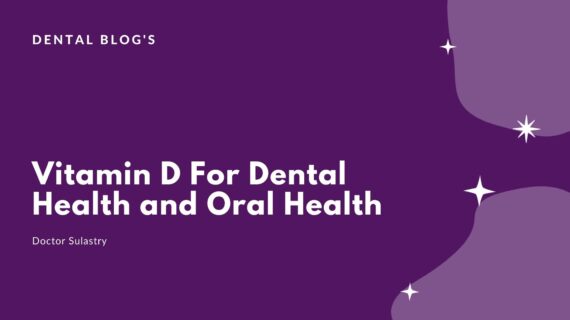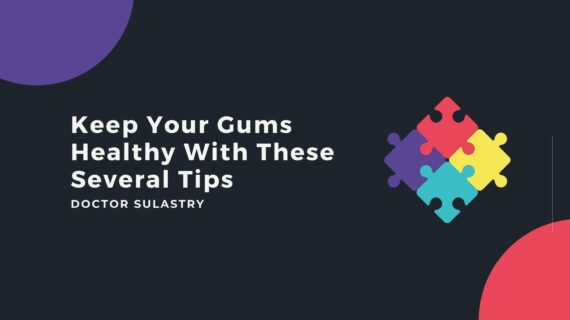Vitamin D For Dental Health – Vitamin D is one of the important vitamins that the body needs. The function of vitamin D, among others, is to help maintain bone strength and the immune system. However, it turns out that the benefits of vitamin D are also reflected in oral health. That is why if you want to have healthy and strong teeth, you need to meet your daily intake of vitamin D.
Vitamin D is a type of vitamin that dissolves easily in water and is available in a number of food ingredients. Not only useful for strengthening bones, vitamin D is also very beneficial for oral health.
Also Read Keep Your Gums Healthy With These Several Tips
The Function of Vitamin D for Oral Health
The body needs vitamin D for calcium absorption. Calcium with the help of phosphorus and other minerals plays an important role in building and strengthening dental tissue from within.
Apart from strengthening teeth, here are some other functions of vitamin D for oral health that you should know:
- Helps accelerate the healing process of cavities.
- Helps prevent gingivitis because vitamin D has anti-inflammatory properties.
- Responsible for making cementum that binds your teeth to the bones in your mouth.
- As mentioned above, vitamin D also plays a role in regulating the immune system. The mouth is a soft nest for germs and bacteria that cause disease. If your intake of vitamin D is fulfilled properly, this will further strengthen your body’s resistance to various diseases related to teeth and mouth.
Without enough vitamin D, your body also can’t form enough calcitriol compounds to absorb calcium from food. This means that your risk of developing dental problems, especially cavities and gum disease, can increase. What’s more, the genes that control periodontitis (gum disease) are also regulated by receptors controlled by vitamin D.
What are The Sources of Vitamin D?
Sunlight is the best source of vitamin D. You don’t have to “burn” your skin for hours to get this vitamin. The reason is that skin that is exposed to sunlight in a short time can produce the amount of vitamin D the body needs for daily needs.
Apart from the sun, you can also get vitamin D from food. Some foods that contain vitamin D include fish that contain good fats. Such as salmon, tuna, mackerel, sardines, egg yolks, red meat, and other.
Benefits of Vitamin D for Dental Health
Vitamin D is a type of vitamin that dissolves easily in water. It is available in a number of food ingredients. Not only is it useful for strengthening bones, basically vitamin D is also very beneficial for your oral health. Then what are the benefits of getting enough vitamin D for your teeth and mouth?
- Calcium absorption becomes easier
Adequate intake of vitamin D in the body is very useful to form cortisol compounds. These compounds will then be used to optimize the process of calcium absorption in the body. If your need for calcium is fulfilled, then cavities, swollen gums, and other problems with your teeth can be well prevented.
- Can Strengthen Teeth
The content of vitamin D which is sufficient and not excessive in the body is very useful for strengthening your teeth. However, if the levels are in excess, this can actually trigger dangerous diseases. Related to the eyes, kidneys, lungs, and blood vessels.
But if the body lacks vitamin D intake, then you can experience a variety of symptoms such as fatigue, muscle aches, and joint pain. Therefore, make sure to get enough vitamin D for yourself.
- Prevent Inflammation of the Gums
Inflammation of the gums can be caused by a collection of bacteria lodged on the surface of the teeth. However, this condition can be prevented if your vitamin D intake is adequate.
One way to meet the needs of vitamin D in the body is by consuming sea fish, dairy, and red meat.
- Can To Overcome Teeth and Mouth Problems
The work of vitamin D in the body is closely related to the immune system. If the intake is sufficient, the attack of germs and bacteria that are lodged in the mouth can be destroyed immediately. That way, various diseases related to teeth and mouth can be prevented.
- Can Extend Teeth Life
The characteristics of healthy teeth are ivory white, moisture is maintained. There are no complaints of pain, no cavities, and the condition of the teeth is intact.
Healthy teeth will also have a longer lifespan and are less prone to cracking, compared to unhealthy teeth.
By meeting the needs of vitamin D every day, your dental health will be maintained and will not experience any problems at all.

